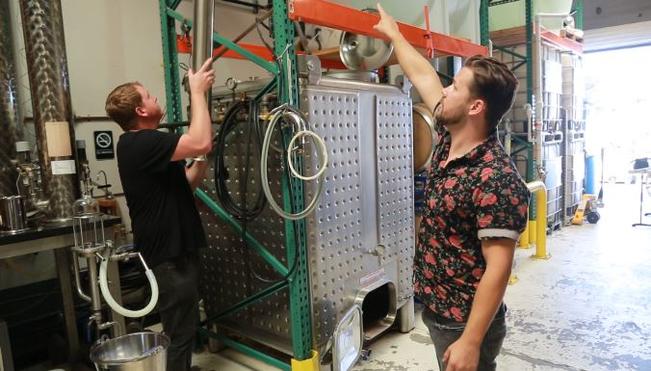Sam Chereskin wants to help you save dough with dough. The co-owner of Misadventure and Company, San Diego's newest distillery, has a knack for transforming the old into new: He converts old bread products into vodka.
Once a week, Chereskin drives up to the Jacobs and Cushman San Diego food bank to pick up bread products that are past their expiration, but still useable. The food bank can no longer give away these products, so this operation is more than just a convenient disposal service, it's a long-term solution to food waste.
The co-owner, Whitney Rigali, explains to NBC San Diego that "essentially, all these baked goods have starches and sugars inside them, which are the building blocks to making any type of alcohol."
And because the bread products are free, Chereskin and Rigali's "bread vodka" can later sell on the market for far less than the competing vodka brands. So, they're using free dough, to save you dough.
To make the vodka, Chereskin brings his starch- and sugar-loaded stash of Twinkies, Ho Ho's, and French baguettes to the distillery where they are dumped into a giant blender. The blender pulverizes the bread mixture until it reaches a porridge-like consistency. (I cannot imagine what that tastes like!) Yeast is then added to break down the sugary porridge, leaving the crude byproduct behind: alcohol.
If the process stopped there, you pretty much have "bread beer," but after heat and extraction, what was once a stale lunchbox treat is now vodka. This "upcycled alcohol" is the perfect lesson in "waste not, want not."
With more than $16 billion worth of food wasted in the U.S. every year, Chereskin and Rigali are taking active steps in the right direction to fight food waste. And as one of the 17 licensed distilleries in San Diego County, they show no signs of slowing down (and for good reason -- the ingredients are all there and it's free.)
"Twinky vodka" may not have been my first answer to the food waste crisis, but they just might be the first words to leave our lips in the years to come. I'll drink to that.


